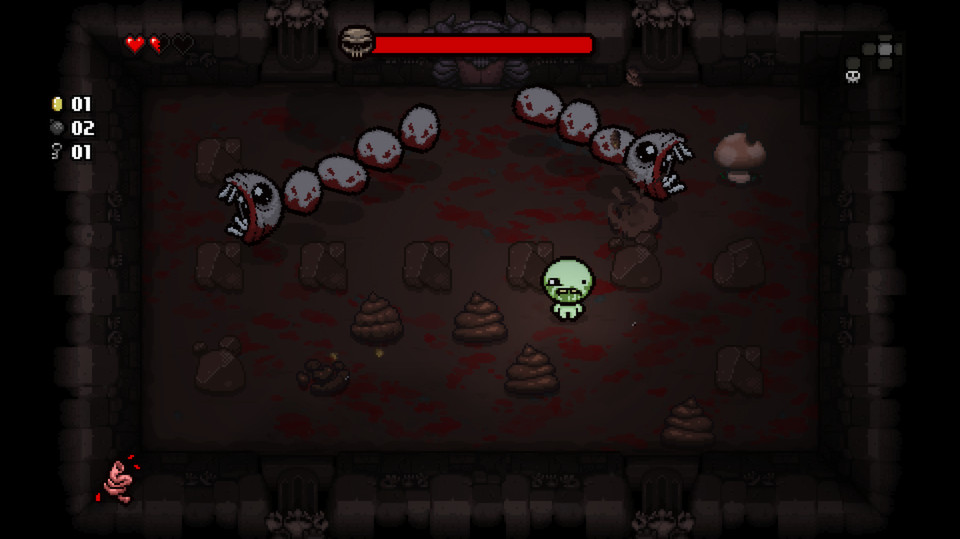Screenshot via FromSoftware
Elden Ring: Nightmare is just the tip of the iceberg.
Remember how everything became open-world in the second half of the 2010s? RPGs like The Witcher 3, puzzles like The Witness, racing like Forza Horizon 4, and many others couldn’t escape its money-making powers. Bigger maps meant longer games and more time spent playing, which was, and still is, all big corporations want.
In 2025, it feels like the 30-minute randomized gameplay loops of rogue-likes are the new trend. Every game seems bound to become a rogue-like, or at least become a bit more random than it would have been if it had been released 10 years ago. Rogue Prince of Persia, Deep Rock Galactic: Rogue Core, and [REDACTED], from the world of The Callisto Protocol, are games that embrace the rogue-like label after being of different genres in their original form.
Even soulslikes, the most challenging games ever made, are getting random like in the release of Elden Ring Nightrein.
While it may seem like devs are just forcing uncertainty into games, it’s actually players who seem to love the challenge brought by unpredictability.

Burn the script
Pokémon randomizers have been around for years now, changing grass encounters and opponents’ teams. The Pokémon Nuzlocke challenge, which limits your captures and forces you to release fainted monsters, also got random editions, and what was already the hardest fan-made way of playing Pokémon became even harder. Legend of Zelda randomizers are also big among retro players, especially those made for Ocarina of Time. Super Metroid, Super Mario World, Final Fantasy, Castlevania: Symphony of the Night, Mega Man, and Chrono Trigger all have fan-made mods that tune up the challenge by shuffling items, maps, and enemies.
Looking into modern titles, Dark Souls, Hollow Knight, and Skyrim have mods that mix monster spawns, reorganize item drops, and shuffle map layouts. Clair Obscur: Expedition 33, a 2025 GOTY contender, also got a randomizer despite being a scripted RPG. Not even rogue-likes are safe: Hades and Risk of Rain 2 are just some of the already random games getting more RNG by players who love flirting with good and bad luck.
Matchmaking in competitive games is also a form of randomness in otherwise scripted games, like queuing up for a Counter-Strike 2 or League of Legends match. Some players chase uncertainty further in modes like ARAM, where the computer chooses everyone’s characters at random. Overwatch‘s Mystery Heroes works the same way, just like Halo Infinite has random loadouts in the Fiesta mode and Magic: The Gathering forces players to craft a deck from sealed packs in Booster Draft. Except for MTG, these are cases where not knowing what resources you’ll get lowers the stakes and makes for a casual experience because nobody, noob or veteran, has time to prepare for what’s coming. Unpredictable matches put everyone on an even playing field.

Every game is bound to become a Rougelike(-like)
Players’ obsession with not knowing what’s coming next is also due to the feeling of freshness, not only difficulty. Randomness makes every round feel new, even if you’ve mastered the details of the game. A good randomizer or rogue-like lets you play a game for a lifetime without ever experiencing the exact same run.
As I write this post, there are over 18,000 people playing The Binding of Isaac: Rebirth on Steam. This Roguelike has been out for 11 years. The last time the game received a DLC was in 2024, 13 years after the original The Binding of Isaac released in 2011. There’s no constant flow of new content like in other live service games, so people stick to The Binding of Isaac because it always feels like a new challenge, thanks to randomness.
It won’t take long for devs to bake randomizers into big game releases, especially RPGs. The usual New Game+ and open world features that keep us attached longer to these titles seem basic next to the blue ocean of possibilities uncertainty adds. Some people can beat Elden Ring with mind control, so I’m a believer that any scripted game at any difficulty level will eventually be turned to dust by a dedicated player.
Developers release DLCs when they know players have gone through all there is to see in their game. But releasing extra content takes time, money, and risk. Adding randomness, however, is a one-time investment to create infinite replayability and turn games evergreen.
Since big publishers are always looking for ways to make players stick to their games for longer, I guarantee your next favorite game will have a lot more randomness than you expect. And you’ll probably like it.








Published: Aug 7, 2025 03:31 pm